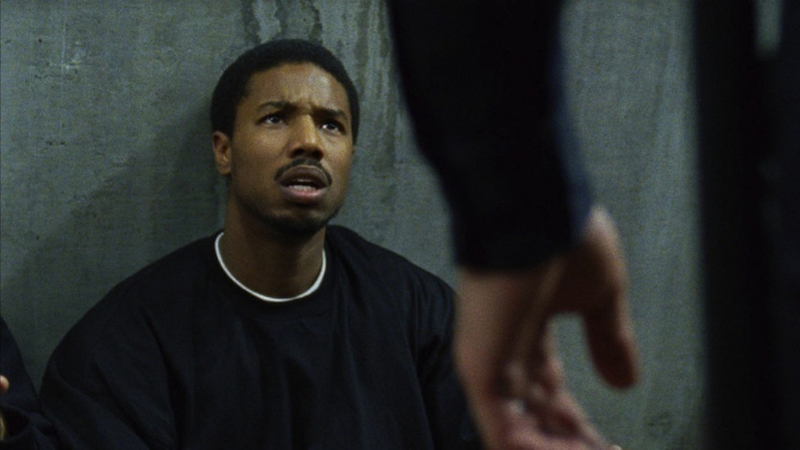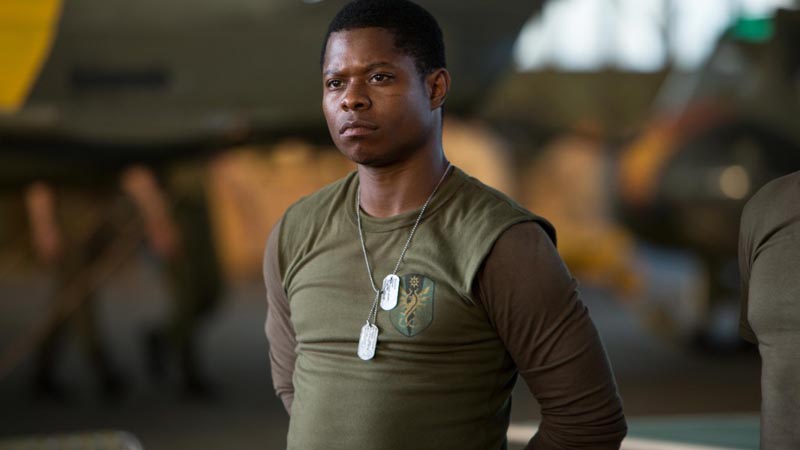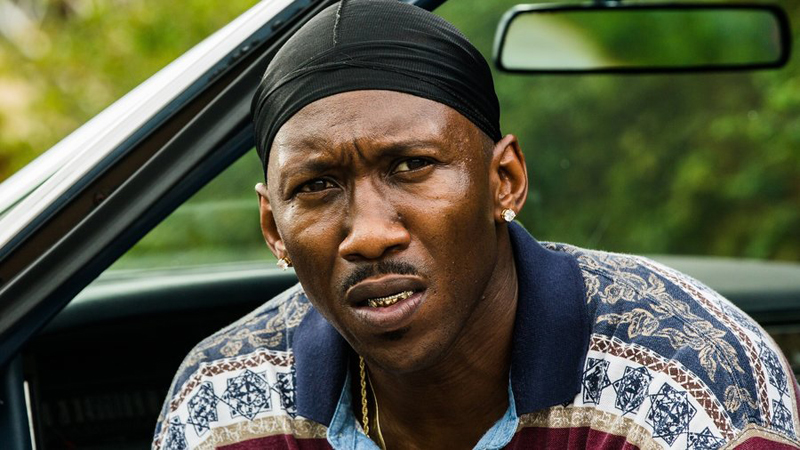Bert Ashe | Shadow and Act
It’s not a position anyone can apply for. The appointment comes by black cultural acclimation, and the holder—Mr. Denzel Washington—will be in that position until someone somehow becomes more beloved than he is. The spot is valuable, no question. But this is not the Supreme Court; it’s not a lifetime position. Someone, at some point, will succeed him. The question is … who?
I trace the beyond-the-second-half-of-the-twentieth-century Black Male Ultra-Star this way: Sidney Poitier → Billy Dee Williams → Denzel Washington → ?????.
It’s true that we’ve had many, many black male stars since Sidney won his Best Actor Oscar in 1963, and we have several now. But I’m talking about black men who capture the imagination of the broad black populace: men want to be him, women want to be with him. I was twelve years old in 1971 when Brian’s Song was broadcast on television—back when everybody watched the same thing on TV at the same time—and I subsequently observed Billy Dee Williams, in real time, getting launched deep into the fond consciousness of black America. Black World took note of Billy Dee that night, and he finally took the title from Sidney in 1972 with Lady Sings the Blues.
He held the throne until the 1990s. Denzel was on St. Elsewhere between 1982 and 1988—while making substantial acting statements in films like A Soldier’s Story (1984) and Cry Freedom (1987)—and all that time, Billy Dee remained comfortably and unquestionably The Man. All during the 1970s and the 1980s, you could stop a hundred black folk in downtown Gary, Indiana, or in downtown Philly, or in Leimert Park in Los Angeles or Bed-Stuy in Brooklyn, and they would all tell you that Billy Dee Williams was The Man.
Then Denzel pushed Billy Dee off the throne and stonily sat down. With run-ups like Soldier’s Story and Cry Freedom as momentum, Denzel’s magnetic portrayal of Private Trip in Glory (1989)—especially that now-iconic whipping scene—began the turn. My wife insists it was Denzel’s Bleek Gilliam in Spike Lee’s Mo’ Better Blues that nearly completed the turn. By 1992’s Malcolm X, it was over; it clearly was, finally, Denzel’s turn. Head back down to Main Street in Any(black)town, USA, and ask them then, or ask them now: it’s Denzel who is The Man. Not Will Smith. Not Samuel L. Jackson. Not Laurence Fishburne. Morgan Freeman? Please. It’s Denzel. Those guys are stars, in some cases huge stars. But in order to sit on that throne, you have to have the unquestioning, abiding affection, the deep, deep love and admiration, and sustained imagination of the black community at large. It’s Denzel. Period. Always.
Well, not “always.” Even though no one could have seen a goofy Denzel in 1981’s Carbon Copy and ever imagined he could scale Mt. Ultra a scant ten years later, the reality is that, as of this writing, Denzel Washington is 62 years old, and sooner or later, some black male star is going to break from the pack and become the new Black Male Ultra-Star.
Not long ago, somewhere around four or so years ago, Shadow and Act editors and readers were bitterly complaining about the dearth of potential black male lead actors. What, we all wondered, would we do when Denzel, Will Smith (currently 49 years old), Samuel L. Jackson (68), Laurence Fishburne (56), or Morgan Freeman (80, same age as Billy Dee Williams) aged out of contention for most leading man roles? Just a few years ago, the bench seemed bare, the situation dire. No longer.
Chadwick Boseman (41 years old), Michael B. Jordan (30), Lakeith Stanfield (26), Jason Mitchell (30), Mahershala Ali (43), and John Boyega (25) are all contenders now. Each of them have had run-up successes, similar to Glory and A Soldier’s Story: Boseman played James Brown (Get on Up), Jackie Robinson (42) and Thurgood Marshall (Marshall) in the last four years. Michael B. Jordan’s tough and tender turn in Creed was potentially establishing, as was his Fruitvale Station.

Michael B. Jordan
Stanfield turned heads in the TV show Atlanta and Get Out. Jason Mitchell gained notice as Easy E in Straight Outta Compton and a war hero in Mudbound. Mahershala Ali won an Oscar for Moonlight while also starring in Hidden Figures and Luke Cage. And John Boyega starred in Star Wars: The Force Awakens and Detroit.

Jason Mitchell
But here’s the thing: just because they’re contenders doesn’t mean the next Denzel Washington will come from these six actors. There have only been three Black Male Ultra-Stars in the last sixty years, so clearly there have been contenders before. It takes a combination of luck, timing, and countless other factors to even have a chance to sit on that throne. For instance, 45-year-old Idris Elba would be a contender, but I fear he’s missed his shot. If he had made a run of eye-catching, successful films during and in the wake of The Wire, he might have done it. But he didn’t. Elba was thirty years old when The Wire started in 2002. I think if it was going to happen, it would have happened by now. Of course, he’s well thought-of, even beloved, by many millions of black film fans. But he didn’t bump Denzel off the throne when he had the chance, and now, even if he has some huge film success ahead of him, I just don’t think it’s going to happen.
Other would-be contenders that I don’t see as true contenders? David Oyelowo (41). Terrific actor, was great in Selma, among other performances, but lacks a certain sizzle. I just can’t see it happening. And I don’t see it happening for Donald Glover, either, as much as I love his work. Glover’s blackness is quirky and non-traditional, and while that is a wonderful attribute in series like Community and even Atlanta (a very black show), I just don’t think black America is going to go all-in for a black actor unless he has an appeal across all different types of blackness, including, of course, traditional blackness, which is where the majority of black folk live.
And so, today, twenty-five years after Malcolm X, Denzel Washington’s status as The Man is as solid as it’s ever been. But now it seems as if the next five-plus years just might reveal the emergence of a new title-holder.
Here’s what I believe is the key, absolutely necessary ingredient that can propel contenders into Denzel Land, and it ain’t a box office smash with Black Panther, either. I suspect that even though black folk were intrigued by Billy Dee Williams in 1971, his ability to successfully portray a tender-but-masculine Love Man as suave, pin-striped gangster Louis McKay in Lady Sings the Blues is what earned him the title. Sure, he enhanced it with Mahogany (1975), but it was truly Louis McKay that allowed black men to imagine being him and women to imagine—well, I think we all know what many black women imagined doing with Billy Dee Williams. Similarly, it was Denzel Washington playing smooth jazzman/ladies man Bleek Gilliam in Mo’ Better Blues that ultimately pushed Billy Dee off the mountain so Denzel could take his place.
I’m looking forward to Chadwick Boseman’s Black Panther as much as anyone else. Lakeith Stanfield is, perhaps, the most exciting pure actor in the bunch, and I’m not at all sure he even wants to play traditional leading man roles. Mahershala Ali is probably the most charismatic of these contenders, Michael B. Jordan might have the most box office potential, John Boyega’s candidacy asks whether a black Brit could become The Man in the U.S., and while it might be concerning that he’s only 5’ 7”, Jason Mitchell still has an outside chance to stand tall.

Mahershala Ali
But as of now, none of these actor’s names come close to passing the ask-a-hundred-black-people-on-the-street test. “Who?” would likely be the bewildered response. But one day someone will bump Lord Denzel off that lofty throne, and this collection of actors just might possess his successor. I just don’t think it’ll happen unless and until someone convincingly portrays a Love Man: a popular, hit movie that features a thoroughly compelling character who is unquestioningly black and masculine and smart and yet somehow also projects vulnerability (think Elba’s Stringer Bell character from The Wire). I suggest that the star who has a series of corroborating hits before and after such a character, can ride that key, pivotal role in order to catapult themselves into becoming that rarest of rarities: The Man, our next Black Male Ultra-Star.
But for now, we’re left to muse to ourselves: Who will it be?
